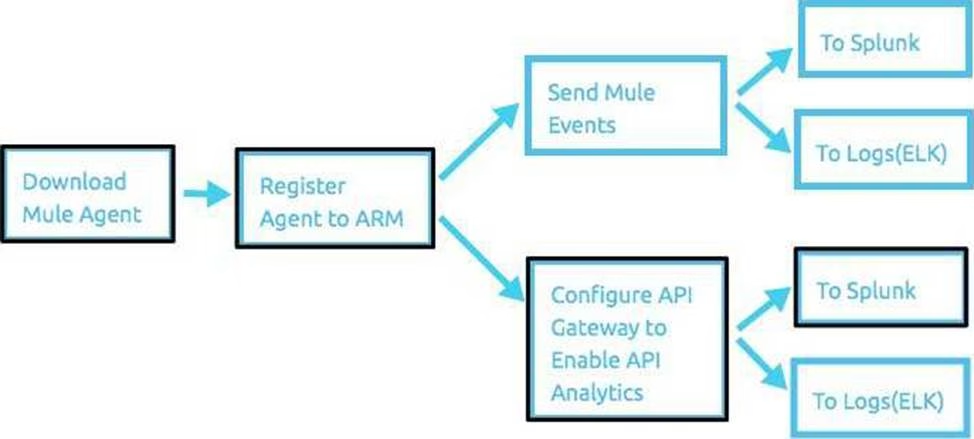What MuleSoft component is responsible for feeding analytics data to non-MuleSoft analytics platforms?
An organization uses Mule runtimes which are managed by Anypoint Platform – Private Cloud Edition.
What MuleSoft component is responsible for feeding analytics data to non-MuleSoft analytics platforms?
A . Anypoint Exchange
B . The Mule runtimes
C . Anypoint API Manager
D . Anypoint Runtime Manager
Answer: D
Explanation:
Correct answer is Anypoint Runtime Manager
MuleSoft Anypoint Runtime Manager (ARM) provides connectivity to Mule Runtime engines deployed across your organization to provide centralized management, monitoring and analytics reporting. However, most enterprise customers find it necessary for these on-premises runtimes to integrate with their existing non MuleSoft analytics / monitoring systems such as Splunk and ELK to support a single pane of glass view across the infrastructure.
* You can configure the Runtime Manager agent to export data to external analytics tools. Using either the Runtime Manager cloud console or Anypoint Platform Private Cloud Edition, you can:
–> Send Mule event notifications, including flow executions and exceptions, to Splunk or ELK. –> Send API Analytics to Splunk or ELK. Sending data to third-party tools is not supported for applications deployed on CloudHub.
You can use the CloudHub custom log appender to integrate with your logging system.
Reference:
https://docs.mulesoft.com/runtime-manager/ https://docs.mulesoft.com/release-notes/runtime-manager-agent/runtime-manager-agent-release-notes

Additional Info:
It can be achieved in 3 steps:
1) register an agent to a runtime manager,
2) configure a gateway to enable API analytics to be sent to non MuleSoft analytics platform (Splunk for ex.) C as highlighted in the following diagram and
3) setup dashboards.

Latest MuleSoft Integration Architect I Dumps Valid Version with 244 Q&As
Latest And Valid Q&A | Instant Download | Once Fail, Full Refund

